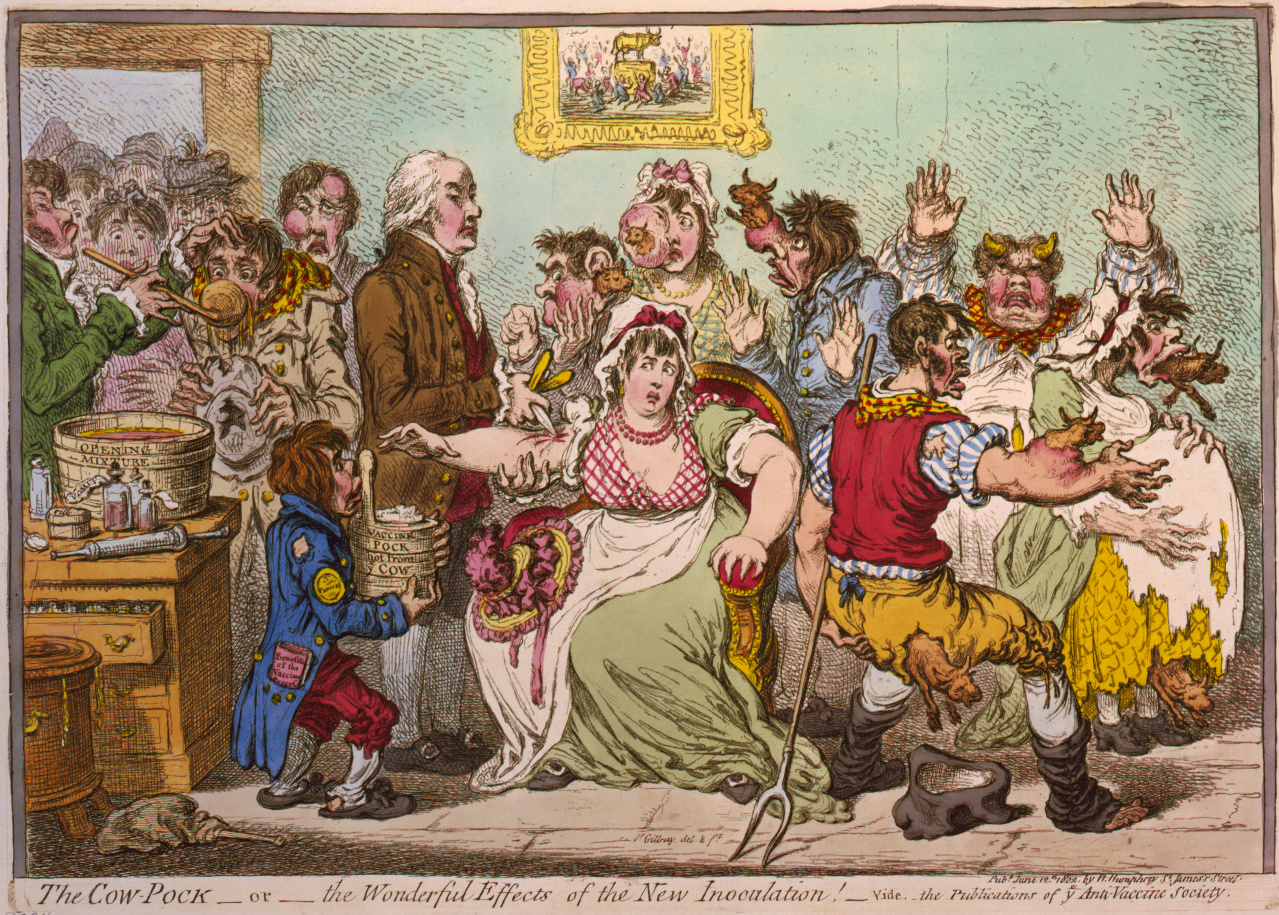Anti-vaccination movement
Enlarge text Shrink text- Work cat.: Durbach, Nadja. Bodily matters : the anti-vaccination movement in England, 1853-1907, 2005.
- Science under siege, 2009:chapter title (The anti-vaccination movement)
- Offit, Paul A. Deadly choices : how the anti-vaccine movement threatens us all, 2015.
- Navin, Mark. Values and vaccine refusal : hard questions in ethics, epistemology, and health care, 2016:chapter titles (Gender, vaccine denialism, and resistant epistemic communities; Bias and the 'irrationality' of vaccine denialism)
- BBC WWW site, Nov. 04, 2016:article title (What's behind the 'anti-vax' movement?)
- Kata, Anna. Anti-vaccine activists, Web 2.0, and the postmodern paradigm : An overview of tactics and tropes used online by the anti-vaccination movement.
Anti-vaccine activism, which collectively constitutes the "anti-vax" movement, is a set of organized activities expressing opposition to vaccination, and these collaborating networks have often sought to increase vaccine hesitancy by disseminating vaccine misinformation and/or forms of active disinformation. As a social movement, it has utilized multiple tools both within traditional news media and also through various forms of online communication. Activists have primarily (though far from entirely) focused on issues surrounding children, with vaccination of the young receiving pushback, and they have sought to expand beyond niche subgroups into national political debates. Ideas that would eventually coalesce into anti-vaccine activism have existed for longer than vaccines themselves. Various myths and conspiracy theories (alongside outright disinformation and misinformation) have been spread by the anti-vaccination movement and fringe doctors. These have been spread in a way that has significantly increased vaccine hesitancy (and altered public policy around ethical, legal, and medical matters related to vaccines). However, no serious sense of hesitancy or of debate (in the broad sense) exists within mainstream medical circles about the benefits of vaccination. The scientific consensus in favor of vaccines is "clear and unambiguous". At the same time, however, the anti-vax movement has partially succeeded in distorting common understandings of science in popular culture.
Read more on Wikipedia >
 Topic
Topic





